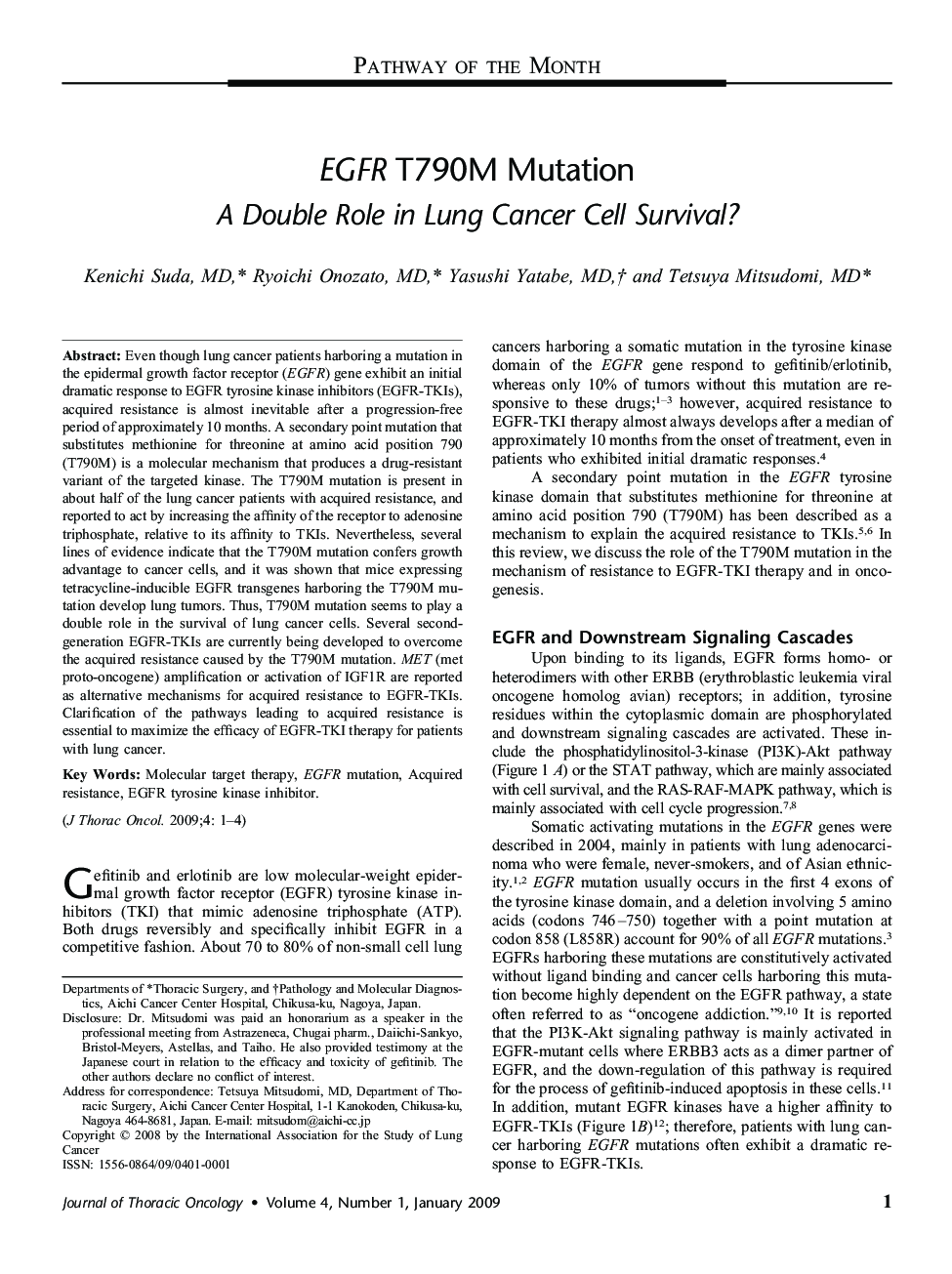| Article ID | Journal | Published Year | Pages | File Type |
|---|---|---|---|---|
| 3992120 | Journal of Thoracic Oncology | 2009 | 4 Pages |
:Even though lung cancer patients harboring a mutation in the epidermal growth factor receptor (EGFR) gene exhibit an initial dramatic response to EGFR tyrosine kinase inhibitors (EGFR-TKIs), acquired resistance is almost inevitable after a progression-free period of approximately 10 months. A secondary point mutation that substitutes methionine for threonine at amino acid position 790 (T790M) is a molecular mechanism that produces a drug-resistant variant of the targeted kinase. The T790M mutation is present in about half of the lung cancer patients with acquired resistance, and reported to act by increasing the affinity of the receptor to adenosine triphosphate, relative to its affinity to TKIs. Nevertheless, several lines of evidence indicate that the T790M mutation confers growth advantage to cancer cells, and it was shown that mice expressing tetracycline-inducible EGFR transgenes harboring the T790M mutation develop lung tumors. Thus, T790M mutation seems to play a double role in the survival of lung cancer cells. Several second-generation EGFR-TKIs are currently being developed to overcome the acquired resistance caused by the T790M mutation. MET (met proto-oncogene) amplification or activation of IGF1R are reported as alternative mechanisms for acquired resistance to EGFR-TKIs. Clarification of the pathways leading to acquired resistance is essential to maximize the efficacy of EGFR-TKI therapy for patients with lung cancer.
